Here is the list of services offered at the hospital
HEALTH EXAM
During your consultation which lasts between 20-30 minutes, you will first meet a technician who will take your animal’s health history. She will also weigh your pet, take its temperature, look for external parasites and take samples if needed. The technician will retrace the medical history and complete your pet’s health record. She can answer many questions regarding basic health care prevention, behaviour, nutrition, etc.
After a veterinarian will perform a detailed physical exam of your animal. An exam from head to toe : Body score, vital signs, abdominal palpation, lymph node palpation, joint palpation, heart and lungs auscultation, examination of the ears, eyes, teeth and fur.
The veterinarian will make recommandations based on your pet’s needs. (Vaccination, nutrition, neutering and necessary treatments)
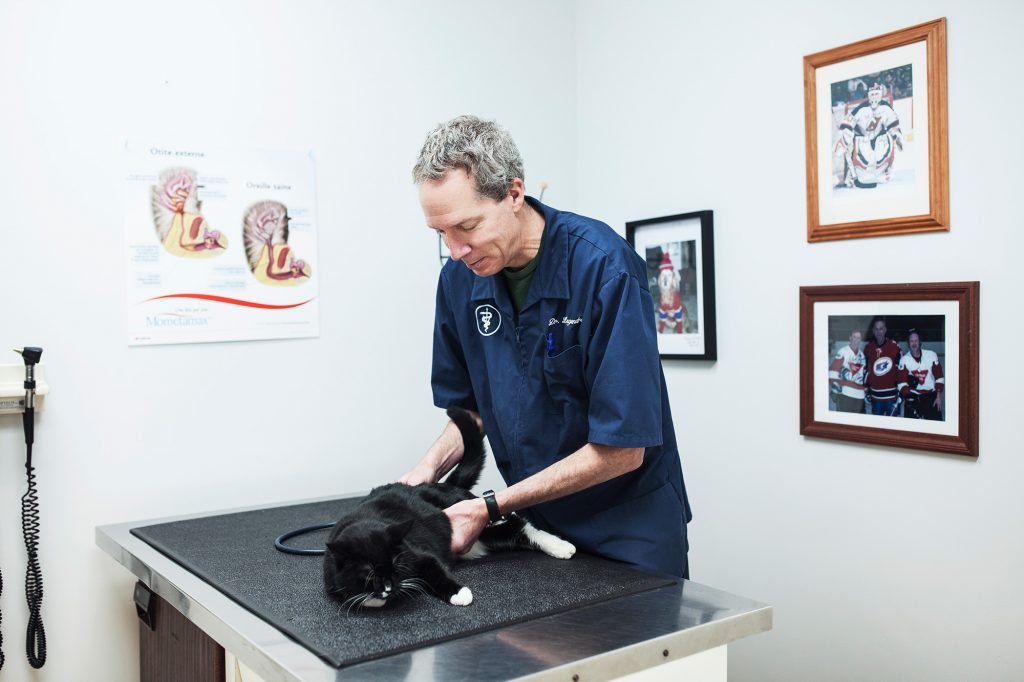
VACCINATION
Since each animal has different needs according to its age, its background and its lifestyle, we will determine your pet’s personal vaccination calendar.
CAT VACCINES:
Infectious Rhinotreacheitus (Rhino): An upper respiratory infection that is easily transmitted from cat to cat by nasal and eye secretions and by saliva. The symptoms are fever, loss of appetite, sneezing a cough and purulent discharge from the nose and eyes. Cats that receive appropriate treatment can recover from the virus. But will stay carriers for life. -Feline Paneucopenie: also known as cat distemper is very difficult to treat and is often deadly. Signs are lethargy, diarrhoea, vomiting, fever and dehydration.
Calcivirus: Another respiratory disease, extremely contagious and hard to treat. Symptoms are high fever, ulcers in the mouth and on the tongue and nasal and eye secretions. Symptoms can be mild or severe depending on the severity of the virus. Cats can recover but continue to transmit the virus.
Feline Chlamydia: A bacteria that causes infection of the eye and can also attack the lungs. Chlamydia is mostly contagious to young kittens. Be careful as it is contagious to humans by direct contact.
Feline Leukemia: It attacks the immune system; therefore cats can show many different health problems. Cancer is one of the problems that can be a result of this disease. Cats can be carriers for months or even years without showing any outward signs. Unfortunately they can infect other cats without us ever knowing. There exists a test to detect this disease. But there is no treatment.
Rabies: It attacks the central nervous system. Transmitted by the saliva of an infected animal. It can infect most mammals including humans. There exists no treatment for an animal infected by rabies.
DOG VACCINES:
Canine Distemper: A highly contagious disease, it is transmitted by nasal and eye secretions of an infected dog. Symptoms are general apathy, fever, cough, diarrhoea and vomiting. The virus attacks a number of organs along with the nervous system and can be accompanied by convulsions and paralysis.
Canine Parvovirus: Again extremely contagious, it is transmitted in the feces of contaminated dogs. Symptoms are quick to show, vomiting and severe bloody diarrhoea. Unfortunately this virus is often deadly.
Canine Corona virus: It attacks the intestines and also causes diarrhoea.
Infectious Canine Hepatitis: It’s contracted by a dog coming into contact with the secretions (saliva, urine, or feces) of an infected dog. The first symptoms resemble that of distemper. Developing into renal problems, ulcers of the eye and respiratory problems.
Leptospirosis: It’s unfortunately a zoonose disease (transmittable to humans) and is appearing in Quebec more often. The animal shows signs of lethargy, loss of appetite, vomiting, fever, severe thirst, a higher production of urine, jaundice (yellowing of the skin and mucus membranes) blood in the urine and bloody diarrhoea. It is contacted my skin or mucus membrane contact, infected water, on food, in the soil or other elements contaminated by the urine of an infected animal. Wild animals are often carriers (raccoons, skunks).
Rabies: It’s a deadly virus which attacks the central nervous system. It is transmitted by the saliva of an infected animal, by a bite or by contact with an open wound. There is no cure for an animal infected by rabies. This is also a zoonose disease (transmittable to humans).
Bordetella (kennel cough): It’s often picked up in kennels or obedience classes, transmitted by the saliva and nasal secretions of infected dogs. Similar to cold symptoms we suffer with the common cold. It can cause a deep chested cough and can also cause a runny nose.
Lyme Disease: Transmitted by the deer tick, it is contagious to animals and humans (another zoonose disease). It causes flu like symptoms (lethargy, loss of appetite, fever), and can develop into chronic arthritis. Lyme disease can be deadly if left untreated. This is a disease being seen more frequently in Quebec. If you find a tick on your animal remove it as quickly as possible. There is a test available that detects lyme disease.
GENERAL SURGERY
- Neutering: Dog, cat and rabbit
- Spaying: Dog and cat
- Cysts and lumps excisions
- Certain orthopedic surgeries such as cruciate ligament repair and arthroplasty
- Cystotomy (stone removal from the bladder)
- Exploratory laparatomy (as for foreign body extraction)
- And many more
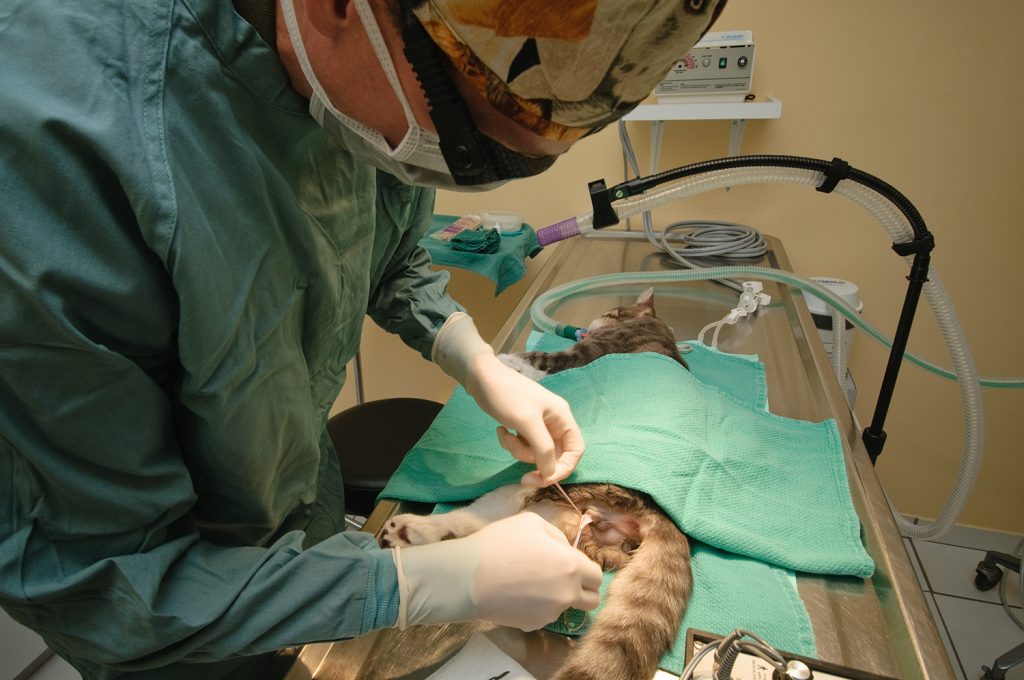
INTERNAL LABORATORY
We have on site high quality devices that allow us to obtain rapidly the majority of biochemical, hematology, serology, urine and fecal tests. The results are rapidly transmitted enabling us to define a treatment plan if needed.
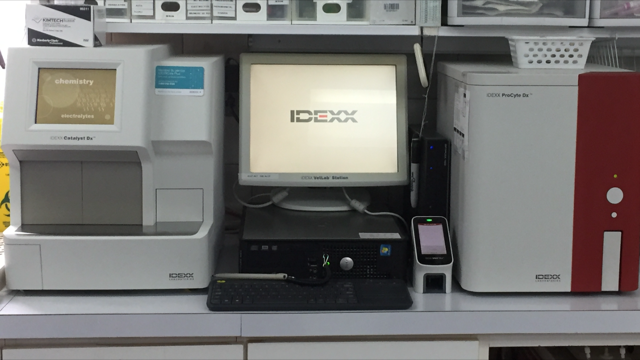
EXTERNAL LABORATORY
For special tests that cannot be done onsite, we work with Idexx laboratories and the Faculty of Veterinary Medicine in St-Hyacinthe.
DENTAL CARE
Our hospital has cutting edge dentistry equipment. An ultrasound descaler and a digital dental xray machine. Our specially trained technicians perform the descaling, the polishing and the dental xray if needed. The veterinarian will perform any necessary dental extractions.
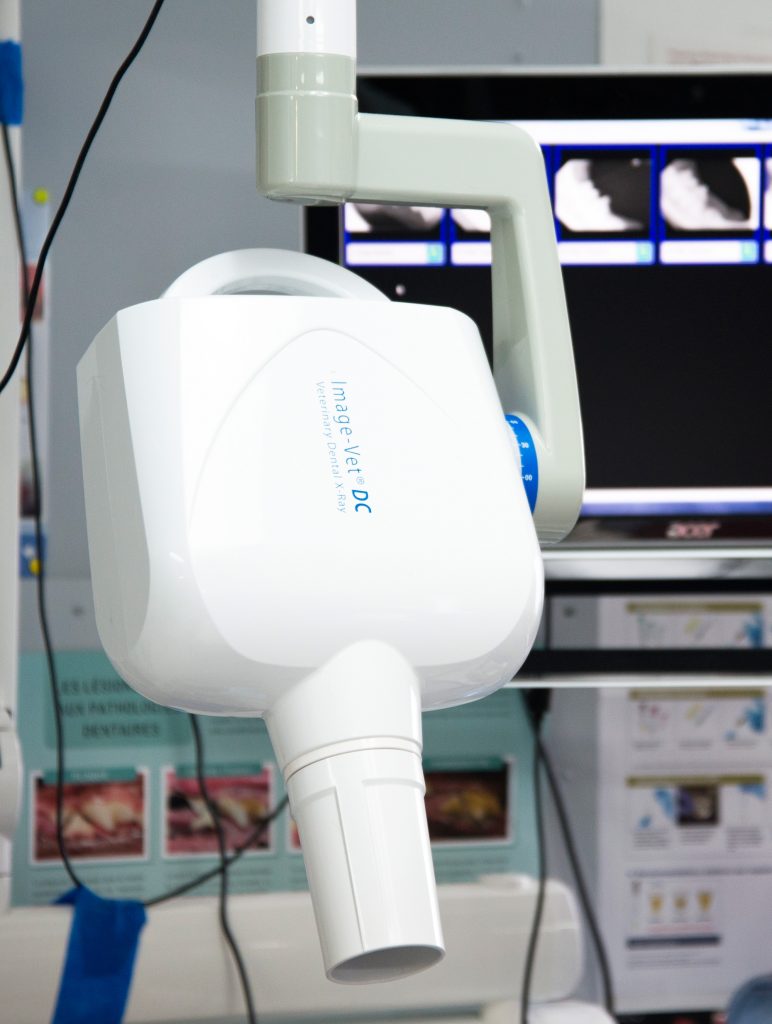
SPECIALIZED CANINE BEHAVIOR
Isabelle Gauthier is our intervener and canine behaviour specialist; she is this field for 9 years now and works with respect for the individual. She has a degree in training with Jacinthe Bouchard, a certification on aggressiveness and aggression, trained in canine sports; she treats all types and breeds of dogs. She uses only ethical techniques and scientifically recognised.
She offers you the following services:
- Puppy training classes
- Semi-private or private obedience classes
- Fancy classes
- Consultation for behaviour problems
- Behaviour evaluation
- Conference
- All kinds of workshops (clicker, behavioural psychology,)
- Companion service to find the right dog for you
- Prepare your dog for baby’s arrival
Isabelle Gauthier
Intervener and canine behaviour specialist
www.aucoeurdevotretoutou.com
aucoeurdevotretoutou@gmail.com
514-519-7368
EXOTIC ANIMALS
Dre Parent-Simard Dre Pronovost have a great interest in exotic animals. They will take care of your rabbit, ferret, guinea pig, hedgehog or your rat.
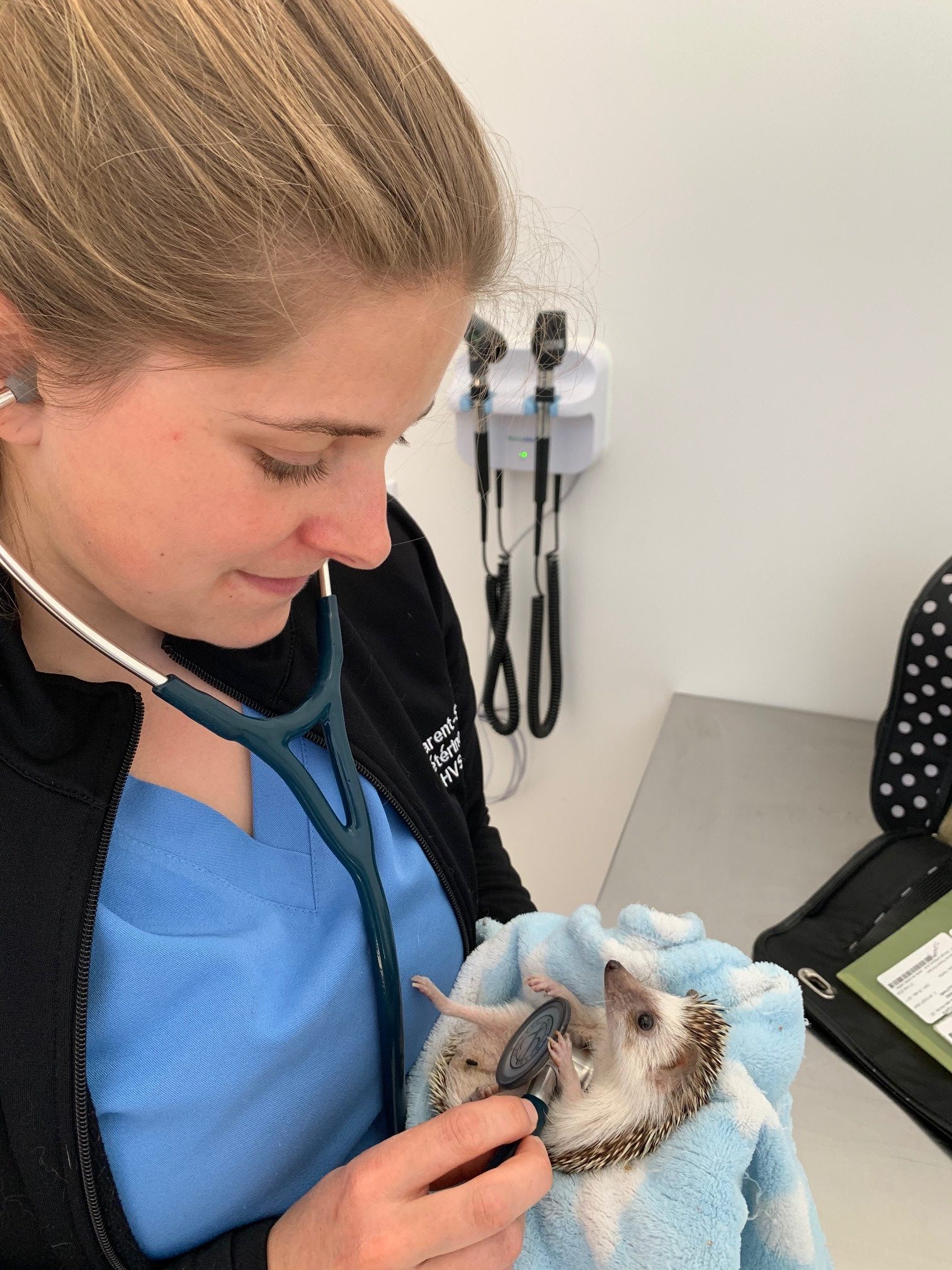
X-RAY
For several years, we have a digital xray machine. This allows us to obtain faster, better quality and more precise images. Xrays play an important role in diagnostics.
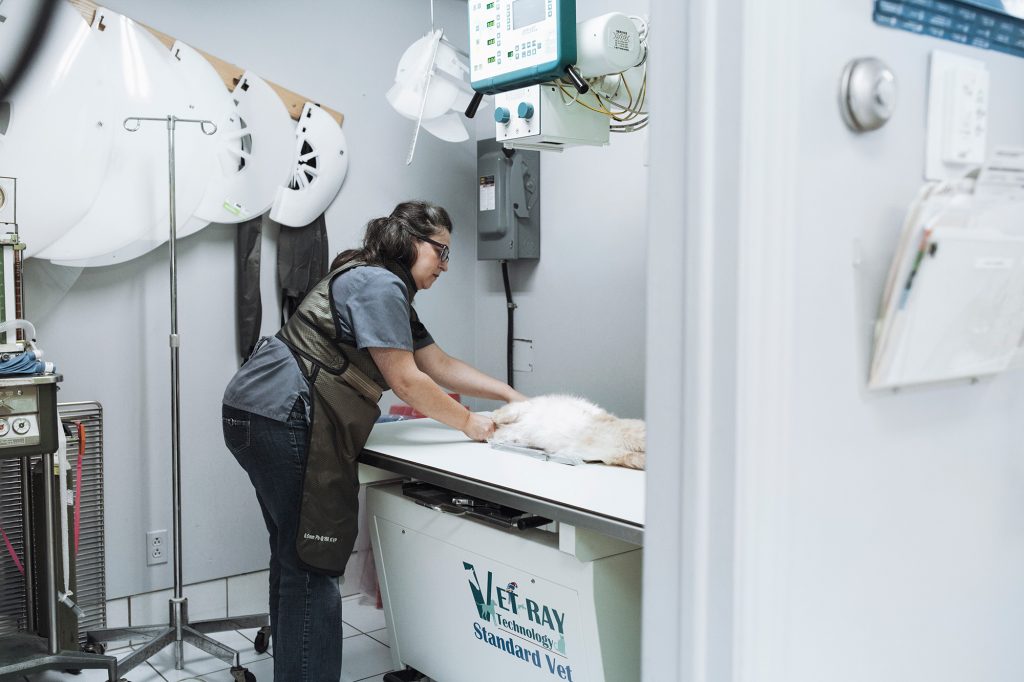
ULTRASOUND
The ultrasound device helps evaluating the internal organs. With this technology, it is possible to obtain a sterile urine or tissue sample less invasively. The ultrasound also helps diagnose gestation in the first weeks.
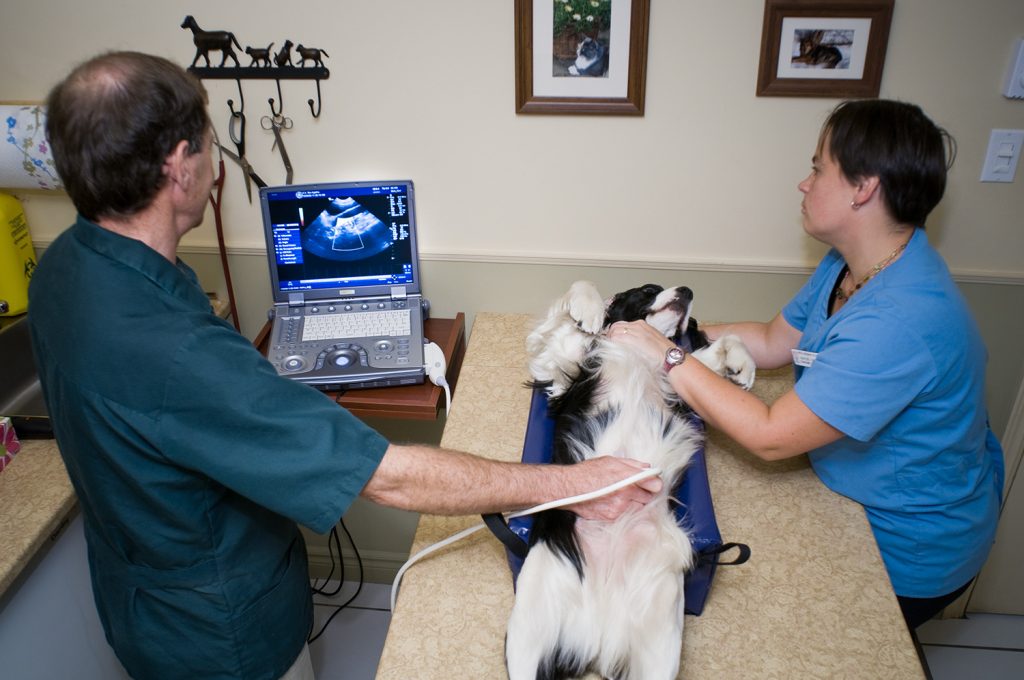
NUTRITION CENTER
We understand how difficult it is to find what you need in the enormous pet food market. You must also be aware that it is impossible for us to know all the diets available at the pet stores and supermarkets. We have concentrated our efforts to study certain veterinary diets that correspond to the needs of your pets, wether it be for growth, maintenance, seniors, weight loss or special diets for medical conditions. We have chosen diets with superior quality from companies that have done a lot of research and that offer guaranties on their products. Thus, we can help you make an informed decision.
WEIGHT LOSS PROGRAM
Almost 50 % of our pets are overweight. This can have negative consequences on your pets health and quality of life. At our hospital, 2 trained technicians offer weight loss advice and followups to help your pet lose weight. Make an appointment with them.
GERIATRIC PROGRAM
For many years, we offer a geriatric program for animals over 7 years old. We recommend a geriatric blood profile and urine test. We will get excellent data on your pets health status and this will also serve us for future reference.
BLOOD PRESSURE MONITORING
We have a unit that mesures blood pressure in dogs and cats. This test helps us monitor different conditions such as heart, kidney and thyroid disease.
EUTHANASIA
Euthanasia means: a painless end of life.
It is with great respect and empathy that we will accompany you through this difficult process when the time comes.
You probably have several questions, such as: How will I know when it’s time, how to make the difficult decision, what to expect, can I assist, what’s the next step, where will my animal go next. Let’s try to answer these questions as much as possible in order to help you through this difficult journey.
How will I know when it’s time?
- He seems to be in pain. There’s a significant weight loss.
- He has difficulty defecating or is incontinent. Needs help getting around.
- He has stopped eating and drinking.
- Palliative care is exhausted, nothing relieves his pain.
- You no longer have any quality of life either. You don’t sleep anymore and you must always be home for him.
- Here’s a little suggestion: make a list of 5 things or activities that your pet loved. When he has lost interest in all or most of these activities, it may be time to discuss euthanasia with your family and your vet.
When the decision is made, what’s the next step?
- Contact us so that we can schedule a time that is best for you. There is usually no wait for this kind of appointment.
- We have a well fitted room in our hospital for your comfort for those last precious moments with your pet. You will be able to take the time you need to collect yourself before and after the procedure.
- Do not hesitate to bring his favorite pillow or blanket with him.
- If necessary, ask a loved one to accompany you.
- Remember, if you are in doubt or are unsure of your decision please let us know so we can help you.
What to expect?
- Upon arrival, you will be immediately directed to the room.
- We will ask you to sign the form authorizing us to perform the euthanasia and at the same time we will offer you to settle your bill, so you won’t have to worry about anything afterwards.
- A technician will come in and explain the procedure to you. She will administer a light sedation to your animal in order to reduce his stress. We will give you the time you need to say goodbye.
- When you are ready, the technician will return to perform the euthanasia. People are often surprised at how quick the whole process takes. The technician will use a stethoscope to confirm that your pet’s heart has stopped and that he has passed.
What happens to my pet afterwards?
- Cremation is the most popular option and you can choose to have your pet’s ashes returned to you. Please let us know in advance so that we can prepare the documents and the identification for the individual cremation. You may choose amongst several types of urns and/or commemorative products. You can visit Incimal’s website to see what they have to offer at www.incimal.com.
- You don’t wish to have your pet’s ashes returned to you? Your pet will have a communal cremation by the same company. Rest assured that everything is done with the greatest respect.
- Would you like to bury your pet at home? Before doing so, be sure to check with your municipality’s regulations for any restrictions.
Mourning
No one experiences grief the same way. Several members of the same family can have very different reactions and emotions. It is therefore important not to judge but to let everyone go through their grief in their own way.
Several feelings can arise; emptiness, sadness, guilt, grief, relief and even frustration. These emotions fade with time and happy memories shared with your pet will take their place to soothe your grief.
Know that you are not alone and that if you have any questions, we are here for you. We can also recommend support services as needed.
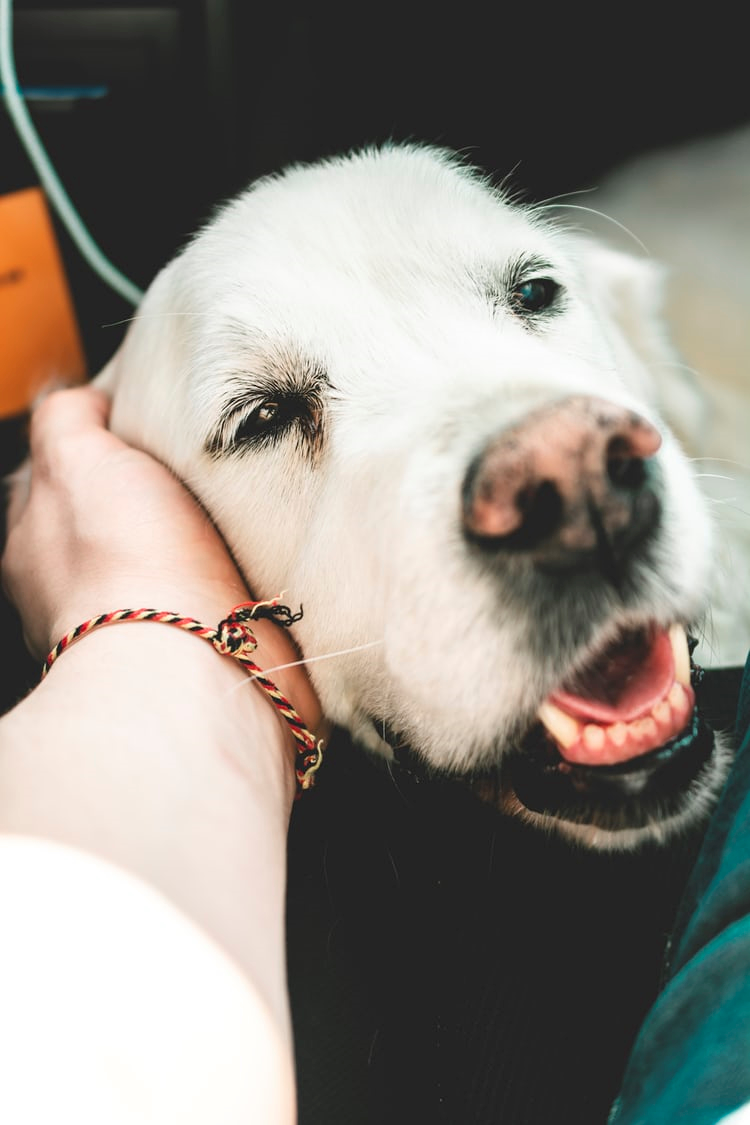
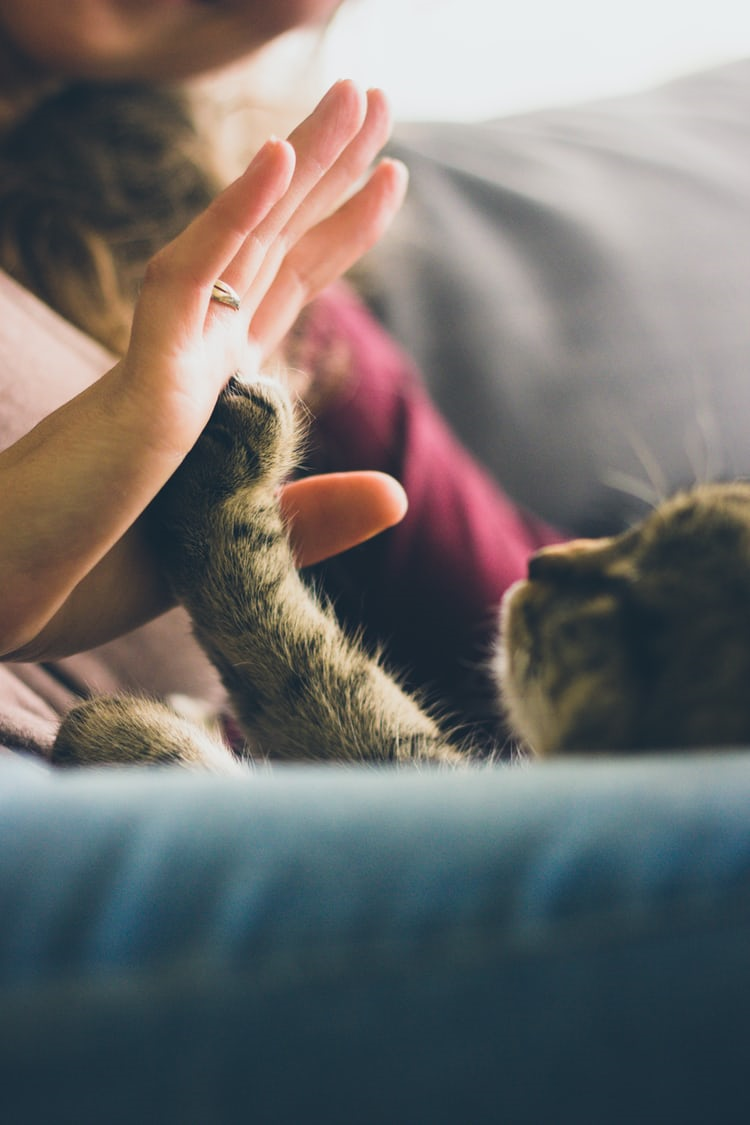
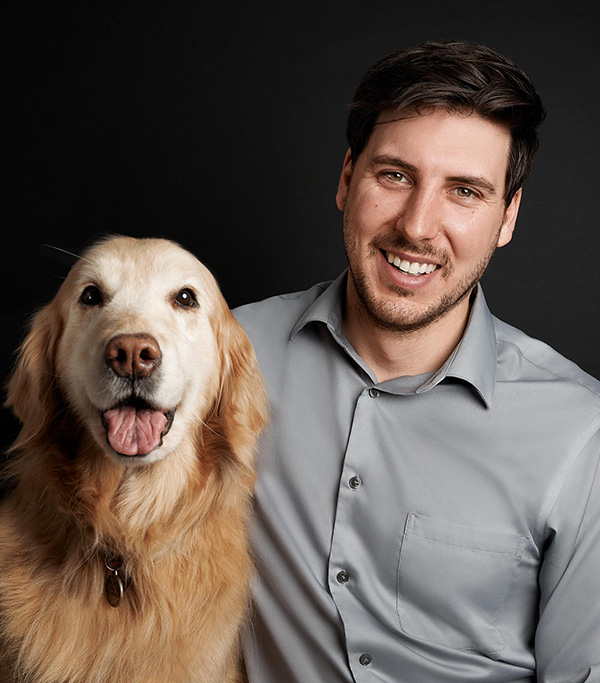
Julien Sylvestre
Manager
Contact information
Phone: 819-326-6062
Toll Free: 888-695-9095
Fax: 819-326-2230
228, rue Principale est (Route 117)
Sainte-Agathe-des-Monts, QC J8C 1K6
Schedule
Monday to Friday: 8am to 6pm
Saturday: 8am to 12pm
24-hour emergency service in collaboration with the CVL of Laval
© Hôpital vétérinaire Sainte-Agathe | Web Creation Metamorfic.ca
